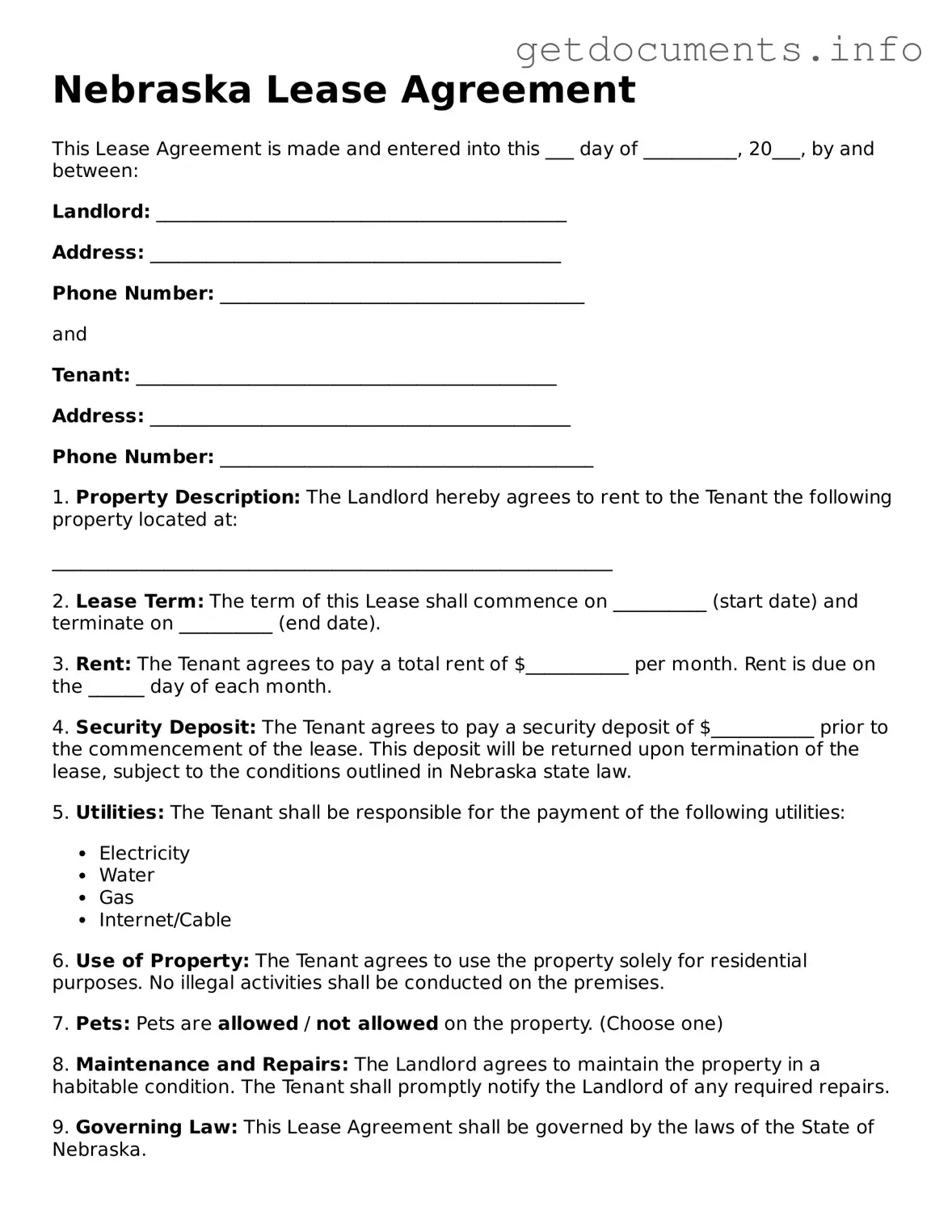Free Lease Agreement Template for Nebraska
A Nebraska Lease Agreement form is a legal document that outlines the terms and conditions between a landlord and tenant for renting a property in Nebraska. This form serves as a crucial tool to ensure both parties understand their rights and responsibilities during the rental period. To get started on your lease, fill out the form by clicking the button below.
Access Lease Agreement Editor

Free Lease Agreement Template for Nebraska
Access Lease Agreement Editor
Got places to be? Complete the form fast
Fill out Lease Agreement online and avoid printing or scanning.
Access Lease Agreement Editor
or
⇩ PDF File
